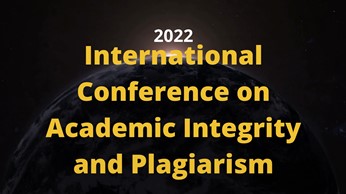Last modified: 2021-12-04
Abstract
Researchers have to publish their work and do this by selecting journals that publish research in their discipline, the majority of which are in the hands of only a few publishers. Scholarly publishing has grown into a multi billion dollar business with very high profits.This system is best for publishers but not for researchers. The main reason for this is that the choice for a journal to publish in is not free but largely dependent on a system of ranking based on citation metrics. In the case of SCOPUS a publisher is in full control of the system which ranks the best journals from all sources. The Web of Science is independent of publishers but it also publishes a list of best journals according to their specific metric algorithms. The ranking suggests to be a measure of quality for journals but under the hood it is functioning more as an ideal marketing vehicle for a limited number of publishers to sell their product.
Researchers and universities want their work to be published in the best journals which they believe are the ones that rank highest. As long as they believe this the system will hold out. Because everybody wants (and needs?) to publish in those journals this leads to a very unhealthy competition especially among young researchers at the beginning of their careers. This is the culture of Publish or Perish, or as the late Jon Tennant would say Publish & Perish, because most students will never succeed in building a career and will be lost for science. For this reason the current publishing system needs to be disrupted. It is the cornerstone of an inequitable global research system based on selection and competition which in itself is part of the knowledge economy which needs to be replaced by a knowledge democracy.*
In the knowledge economy all research is mainly done to make profits. The topics for research are also determined by this principle and not by the need and usefulness of certain knowledges for societies.The current system promotes western based knowledge for the purpose of the knowledge economy.
A new publishing system serving the knowledge democracy would ideally cover all global knowledge systems, use all languages for primal accessibility, would promote sharing and collaboration and would allow every global citizen to access and participate in the production of knowledge to solve local and global problems. Open access journals published in local languages in all countries of the world could be that system as long as the journals or publishing platforms would adhere to the principles of the Knowledge Democracy and not become hijacked by the companies working for maintaining a Knowledge Economy.**
* Scholarly Communication and Knowledge Democracy , Florence Piron, Tom Olyhoek, Ivonne Lujano Vilchis, Ina Smith, and Zakari Liré: https://doi.org/10.1163/9789004459076_007
** Post-colonial Open Access Florence Piron: http://hdl.handle.net/20.500.11794/16178
